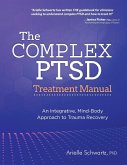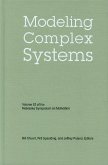EMDR therapy is a remarkable evidence-based approach to psychotherapy. However, it is not easy to do with many clients with complex trauma. Clients with complex trauma often struggle to develop the essential resources, have difficulty tolerating distress, and may initially lack much of the adaptive information that is needed for EMDR therapy to be effective. This book explores each of the phases of EMDR therapy and explains why many clients with complex trauma struggle. It offers sensible accommodations. Clients with complex trauma often survive by using coping strategies that directly conflict with the core tasks of EMDR therapy. We need to make the tasks of EMDR therapy safer and more tolerable to the client's nervous system. That takes time and attention. Clients with complex trauma may be harmed if they are shoved through a mindfulness or EMDR machine. This book invites therapists to explore the unique and complex nervous system of each client and adjust interventions to match each client. Topics covered in this book include: Doing a sensible and safer client history, options for when clients struggle with mindfulness activities, developing helpful attachment resources, ways to navigate blocking beliefs, assessing preparedness for reprocessing, selecting initial targets, understanding where EMDR therapy tends to break and how to intervene, and strategies to help memory content come into awareness in more tolerable ways.
Hinweis: Dieser Artikel kann nur an eine deutsche Lieferadresse ausgeliefert werden.
Hinweis: Dieser Artikel kann nur an eine deutsche Lieferadresse ausgeliefert werden.








